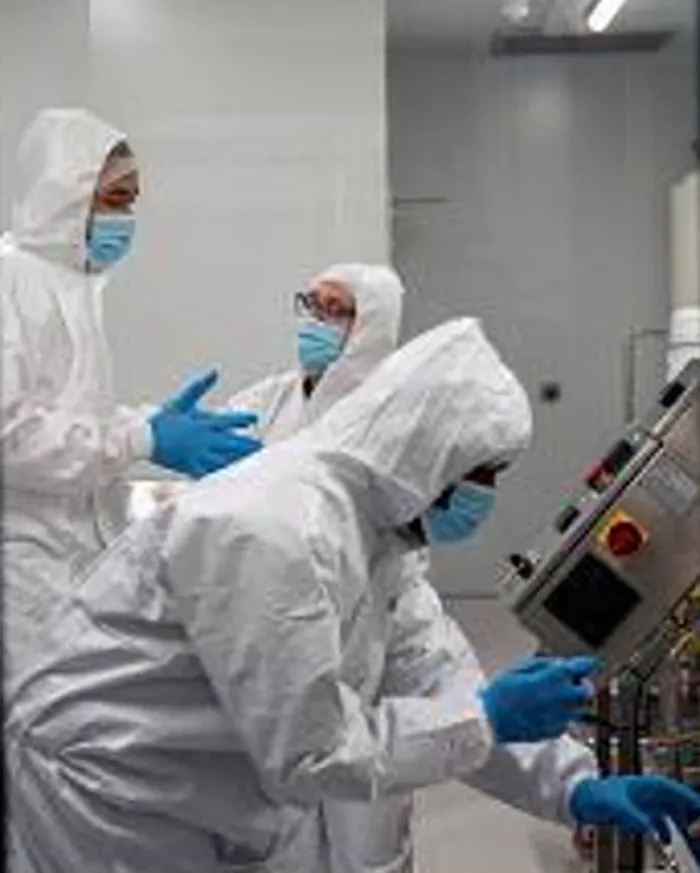SA scientists not too smart: Think of the economy before announcing any new variants

JUST HOLD ON: Scientists should stop chasing the credit
South Africa has some of the world's leading experts in the fields of virology, gene sequencing and epidemiology.
This after our government wisely invested heavily in the fight against HIV and TB, since the '90s.
(Yes, they actually did something right.)
But for all their brains and top research, clinical and laboratory facilities, our experts seem to have short memories - as well as a limited understanding of global politics, the economy and the media.
It’s almost a year ago that former minister of health, Zweli Mkhize, announced that a new Covid-19 variant - named 501Y.V2 - had been discovered by our renowned genomics scientists.
The date was 18 December 2020 and SA was entering its second wave and another hard lockdown.
The "breakthrough", however, backfired spectacularly.
No sooner had the announcement been made than the world media renamed 501Y.V2 the "South African Variant".
And before you could say "Merry Christmas", every country and airline had put SA on its travel Red List.
Our Coronavirus commander-in-chief, Prof Salim Abdool Karim, was at pains to point out to CNN that the variant had been detected in at least 30 countries at the time, but alas the name stuck and the ban stood.
For the next nine months, travel to and from South Africa was suspended.
Hardest hit was our lucrative tourism industry, just as the summer holidays had arrived.
Flights, hotel, tours and restaurant bookings were abruptly cancelled - thousands of jobs in the hospitality sector affected.
Business trips and sports tours were called off, and ordinary people were cut off from family and friends abroad.
The consequences were disastrous, far-reaching and long term.
South Africa had just come through this crisis these past couple of months. There was light at the end of the tunnel.
We were looking forward to a rejuvenated tourism season, a season to be jolly, when history repeated itself - in nightmarish fashion.
A week ago, our esteemed scientists once again proudly declared that they had detected a new variant - the Omicron or B.1.1.529 variant - which has been driving up infections in Gauteng ahead of an anticipated fourth wave.
And before you could say, "Hou jou bek!" we were banned again.

It's a classic case of "he who smelled it first, poeped".
Honestly, why say anything - especially when so little is known about Omicron?
Here's what the World Health Organisation says:
- It's not yet clear where it originated, it was first detected in SA, Botswana and Hong Kong, but has since surfaced in more than 20 countries in North America, South America, Europe, Africa, the Middle East, Asia and Australia.
- It has "several mutations"
- It is not yet clear whether Omicron is more transmissible compared to other variants.
- It is not yet clear whether infection with Omicron causes more severe disease compared to infections with other variants.
- It is not clear how effective the existing vaccines are against the new variant.
With so little information, why not do more research before trumpeting the discovery of Omicron to the world?
Nothing causes anxiety like fear of the unknown.
Naturally, countries would want to shut their borders to us and our variants.
Now our government and scientists are aggrieved that we are being "punished" for the mistake of being transparent, for being responsible and sharing our knowledge with the international scientific community.
One of our top scientists, Professor Tulio de Oliviera, head of the KwaZulu-Natal Research Innovation and Sequencing Platform, complained that "instead of getting recognition and support, we get punished by the international world”.
Well, then perhaps you should stop taking credit for detecting worrying new viruses, variants and mutations.
Yes, your work might receive international attention, which is great for your profile, but think about the damage you are doing to the country.
The Ministry of International Relations and Cooperation said: "This latest round of travel bans is akin to punishing South Africa for its advanced genomic sequencing and the ability to detect new variants quicker.
"Excellent science should be applauded and not punished."

Eish. How naive can you be?
SA had acted in good faith one year ago, and what did the US and Europe do? Scapegoat us and ban us.
It's a form of racism. Really.
Did we honestly expect a different reaction this time around?
Now the border gates are locked and no amount of begging and pleading from President Cyril Ramaphosa on TV will change that. The damage is done.
Cape Town's Economic Growth and Tourism Mayco member James Vos says about R237 million has already been lost due to December cancellations.
The fact of the matter is our scientific community has acted recklessly by making hasty pronouncements in the media, and our economy is going to pay a heavy price for it.
Our government, doctors and professors ought to take collective responsibility and put their heads together to find a way out of this ban.
Or at the very least, make it up to our struggling tourism industry by booking a nice long holiday in the Cape.